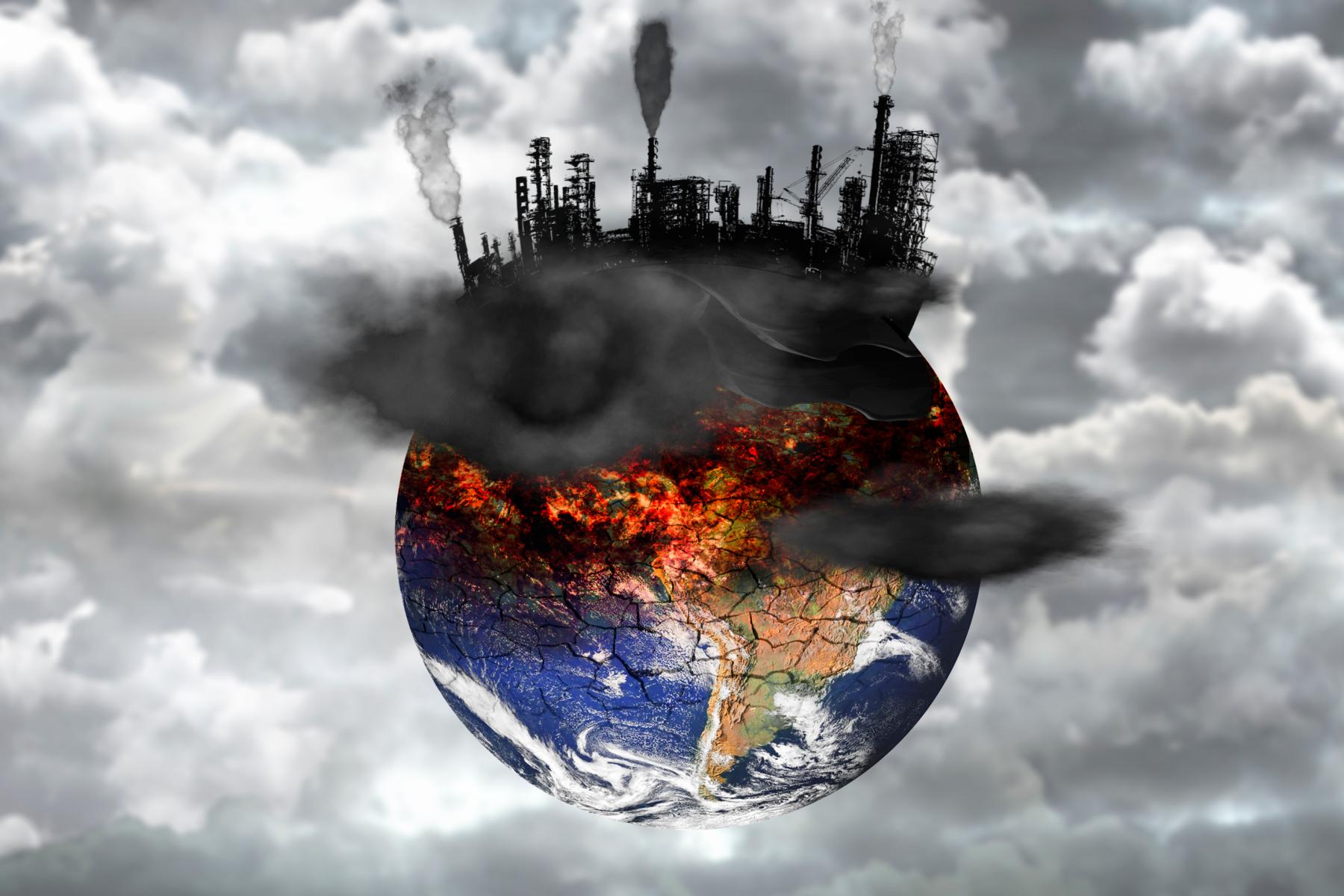Experimental politics in a future of global crises

With the initial covid-19 lockdown put in effect after only a four-hour notice, India saw a mass exodus out of all major cities where more than 100 million rural migrants live and work. As restrictions were enforced, they had nowhere to stay and nothing to earn, sending millions on strenuous journeys on foot towards their home villages. The textile and diamond city of Surat saw protests, riots, and massive frustration with its more than 7 million daily wageworkers left in a precarious state as many factories closed, most because of government directives but many also because northern multinationals had cancelled their orders. Most of the workers had food rations for one or two days and little outlook of improving their situation but were not allowed by authorities to go anywhere. Laying bare the harsh realities of modern mobility and its politics, some were forced to go, and some were forced to stay, both groups facing an arduous future as they did so.
Despite scientific and political attempts to construct narratives of certainty, the response to the Covid-19 crisis formed the greatest social, political, and economic experiment witnessed in our lifetime. The crises vividly put on display how emergencies and states of exceptionalism in equal parts justify and incite practices of experimentation. Whilst the planetary nature of Covid-19 stresses the connectedness of globalized human life, the stark reality of the crisis and its response is also a retreat to national isolationism, xenophobia, and exacerbated inequalities. Despite the uncertainty of addressing the pandemic and its unexpected mutations and patterns, there are really no surprises in its strikingly unequal effects: every society produces its own vulnerabilities, as societies always have throughout history.
It is difficult to escape the feeling that the failure of politicians, governments, and their citizens—all of us—to address current global crises is catapulting us into a new age of experimentation, with the outlook that follows being of equal parts uncertainty and inequality.
Experimental futures
The current interfacing of crises is pushing us into a future of experimental politics, the response to the global pandemic alone forming the largest experiment of our time. An experiment of rapid vaccine discovery, of global governance, and of societies everywhere undergoing unprecedented changes in a very short time. Similar experimental responses are made to other contemporary global crises.
In attempts to address climate change, almost a third of the reductions in co2 emissions necessary to achieve the Paris Agreement’s objectives depend upon geoengineering or negative emissions technologies that do not yet exist. In essence, forms of technological climate engineering – from burying carbon dioxide in the ground to establishing shades in space between the Earth and the Sun – that aims at manipulating a complex system we in fact now surprisingly little about: the global climate. We have little knowledge of what these technologies should look like and whether they can be implemented at scale, yet they form the backbone of the global political response to the climate crisis.
That same deep uncertainty is at play in contemporary humanitarianism that sees organizations experiment with new radical technologies such as blockchain to address human suffering, the ramifications of which we only begin to understand as they are implemented. Humanitarian actors have turned to new and in some instances unproven and untested approaches and technologies, partly because of a growing pressure on them to do more with less resources, and partly because of a growing fashion for the sector to ‘innovate itself ’ through datafication and digitization.
As a consequence, almost all humanitarian organizations now have innovation and technology departments working only to experiment with new technologies and innovative approaches to humanitarian work. We know this from large-scale experiments today, where hundreds of thousands of refugees in for example Jordan, are registered with their biometric traits (e.g. iris scans). In local supermarkets, the refugees can then select the goods they want to purchase and check out using a scan of their irises. A digital system them locates them in the database and funds are withdrawn from their account, registered on a private blockchain. No credit cards, no food vouchers, no banks.
Not just in the humanitarian business, but across those working within the confines of what we call ‘development’, do we see experimental practices arise. Private foundations such as the Bill and Melinda Gates Foundation experiment with new technologies and radical change as they test innovative toilets or condoms or attempt to alter social norms in poor communities, basing their actions on what they see as objective models of change emerging from experiments, reducing the messy real world to formulae. Pharmaceutical companies have moved their experiments with new drugs to ‘emerging markets’ that provide abundant human subjects ready to partake in clinical trials to overcome diseases for which they often cannot afford treatment, pushing both experimental methodologies and stabilizing experimental practices as everyday care. And so-called randomista economists conduct randomized controlled trials and similar methodologies brought in from the natural sciences to experiment with solutions for social problems, driven by similar scientific desires of reducing complex realities to a set of logical causal chains.
Today, the realm of the experimental does not belong exclusively to the scientist, but increasingly also to political life – but with what implications?
Experimentation as political practice
Recently, World Bank economists ran a randomized controlled trial in Nairobi’s low-income settlements to find the most effective measure for forcing tenants to pay for water. The experiment saw widespread criticism for the way it effectively cut off vital access to water for thousands of vulnerable people, and ended up producing knowledge that legitimized such actions not only in Kenya but across the developing world. Such experiments clearly stress the intersectionality of science and politics, but also the relation of these two to inequality.
The use of experimental here then is not in the meaning of a closed and controlled laboratory trial, as we know it from the natural sciences, but instead of a set of values about knowledge, change, and about progress in social and political life. And of a political practice of navigating in situations of pronounced uncertainty and ignorance as we see it with the current interfacing of crises. Here, at the edges of rationality, each political move is a venture into the unknown where consequences and directions may be clouded for different reasons. In this situation, suggested solutions to global crises become not less but in fact more political, each experimental political move reflecting imaginaries about where we are as a society and where we should be heading.
Because of these tangible social and political effects of experimentation, we must approach it from a perspective broader than that pertaining only to a scientific method, as we have in the past. We can call it a political programme, a logic, or just a mindset. The purpose is to say that experimentation is a structuring way to perceive the world’s being and our understanding of it. Not only does it shape and produce science, but also social, economic, and political life. Although experimentation relates to and imagines the future, it is also fundamentally about structuring the present— about who should inform policies or about who should benefit from policy shaped by different inequalities, hierarchies, and privileges. Ultimately, The Global Lab reminds us that there is no universal modernity; the imaginaries of experimentation will have different effects for different people.
Experimentation as inequality and exclusion
The problem with experimental politics, as we see it unfold these years, is that it too easily becomes a politics of inequality and exclusion. Instead of assuming experimentation to be self-evidently productive we have to be mindful of its disempowering effects. Central institutions shaping experimentation – including ones of science, technology, or charity – structure society in ways that determine who can speak, who can enjoy access, or who has agency to incite change and to exert influence.
The new forms of experimental politics often seem to form a modern-day behavioural project running across a multitude of fields that we would intuitively connect to ideas of the ‘digital Anthropocene’ and the trans-scalar revolution brought about by Silicon Valley across economic, social, and political realms that sees a merging of physical and digital realities. A project that appears to be emerging, radical, and disruptive. Yet, at the same time, the scientific instrumentation of the experimental movement reminds us that not all data are created, gathered, or treated equal and that even the most high-tech of efforts may carry classical tropes of modernization, technical determinism, and mechanical objectivity. The new geographies of development, we are often told, suggest a ‘rise of the South’ in agency, influence, and independence. Even so, the new experimental realities nuance such arguments of what and who shapes the intersectionality of global and local relations. For all the glamour of the Sustainable Development Goals, only so much is universal about the world we live in now, something vividly exposed by the crises we face.
Experimentation as we see it practiced then doesn’t so much seem to inspire emancipation as uphold unequal relations of power and resources. And it seems difficult today, if not impossible, to separate these instrumentalizations of life and subjectivity from their capitalization. Technological innovation and experimentation itself are fundamentally about forms of value creation inherent in contemporary capitalism. Through technologized humanitarian efforts, refugees become both modern technologized consumers (when provided with virtual credits on their mobile phones) and contributors to Silicon Valley’s ‘virtual assembly lines’ and value creation when they are educated, connected, and incited to be employed by startups through picture annotation and similar AI-related microwork. It is impossible to escape the feeling that protection increasingly goes hand in hand with integration into the digital economy, both suffering and healing being co-constitutive with yielding and the creation of economic value.
Democratizing experimentation
At its core, experimental politics is about the intersectionalities of politics, science, and technology; about the role of science and technology in society. Do we see these as potentially separate, perhaps even isolated, as conventional views would? Is science and technology both neutral and inevitable? Or should they rather be deeply entangled with conversations in our society about progress and where we want to be heading as a society?
We live in a time where social order and technoscience are coproducts, and rarely for the good of everyone, necessitating the imagining of alternative futures of experimentation. The current experimental movement suffers from a conscious or implicit silencing of voices, both when it comes to science and to politics. That is, some forms of knowledge and the voices of certain groups are seen to be irrelevant, redundant or unnecessary to take into account – walls of ‘us’ and ‘them’ erected by both scientific and political authorities. In scientific experiments, only certain forms of science is seen as legitimate, and in political endeavours, states of exceptionalism are used to isolate what ought to be democratic processes of decision making.
There is need to work towards a more participatory science and a practice of experimentation that recognizes its inherent inequality of engagement and works productively from that and with that. A form of participatory science and politics that leaves room for substantive public contestation and, from a coproduction perspective, sees reflexivity as something that is both relational and distributed. Addressing justice and equity at a systemic level requires critically reflecting on one’s own positionality and impact and taking participation seriously to the extent of appreciating the effects and qualities of the interaction itself to be as important as the eventual end goals.
Options of counterweighting the effects of the current experimental political turn then, are not ones of increasingly adopting precautionary principles in beliefs that we can negate risks or uncertainties or unknowns. Rather, it is about radically reconfiguring both political and scientific regimes based on values of democratization and inclusion. What I am trying to say is that the form of experimentation practised by the movement portrayed here is not the end of history, not the singular form of experimental practice.
We clearly understand today that the laboratory – the most classic of experimental realms – is not a closed space where knowledge can be isolated from society. On the contrary, it is a place where knowledge and society co-exist and influence one another. In the same way, politics must not be seen as an isolated space that only politicians enter. Politics shape our society, for better or for worse, and should therefore be treated as a both inclusive and open space for all to enter and reconfigure. Not least as we step into a future of experimental politics, sending us down definite paths of ignorance and inequality.
DIIS Experts




